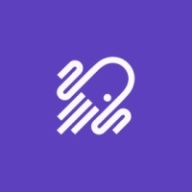

Acunetix and Fortify Application Defender are widely used in the application security sector. User feedback highlights Acunetix for its ease of use and direct value, while Fortify Application Defender stands out with comprehensive features suitable for those who can maximize its capabilities.
Features: Acunetix is recognized for precise scanning, detailed reporting, and actionable insights into vulnerabilities. It provides straightforward tools for quick resolutions. Fortify Application Defender is noted for its robust integration, extensive application protection, and broad feature set catering to complex environments.
Room for Improvement: Acunetix users recommend enhancing customization options and increasing adaptability to meet specialized needs. Fortify Application Defender users see a need for a more streamlined update mechanism and improved user experience during updates. Both tools identify areas that could benefit from further refinement.
Ease of Deployment and Customer Service: Acunetix receives commendation for quick setup and responsive customer service, crucial for immediate protection. Although Fortify Application Defender is effective after deployment, it requires detailed setup but maintains efficient customer support, satisfying users with comprehensive service.
Pricing and ROI: Acunetix provides competitive pricing that aligns with a fast return on investment, beneficial for cost-conscious buyers. Fortify Application Defender demands a higher initial investment but is valued for its long-term impact on security posture, appealing to those looking for sustained benefits.
| Product | Market Share (%) |
|---|---|
| Acunetix | 2.3% |
| Fortify Application Defender | 1.1% |
| Other | 96.6% |

| Company Size | Count |
|---|---|
| Small Business | 15 |
| Midsize Enterprise | 8 |
| Large Enterprise | 16 |
| Company Size | Count |
|---|---|
| Small Business | 3 |
| Midsize Enterprise | 1 |
| Large Enterprise | 8 |
Acunetix Web Vulnerability Scanner is an automated web application security testing tool that audits your web applications by checking for vulnerabilities like SQL Injection, Cross site scripting, and other exploitable vulnerabilities.
Micro Focus Security Fortify Application Defender is a runtime application self-protection (RASP) solution that helps you manage and mitigate risk from homegrown or third-party applications. It provides centralized visibility into application use and abuse while protecting from software vulnerability exploits and other violations in real time.
We monitor all Application Security Tools reviews to prevent fraudulent reviews and keep review quality high. We do not post reviews by company employees or direct competitors. We validate each review for authenticity via cross-reference with LinkedIn, and personal follow-up with the reviewer when necessary.